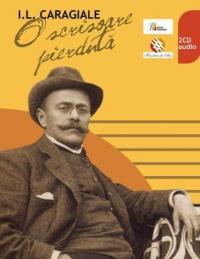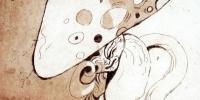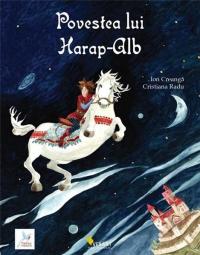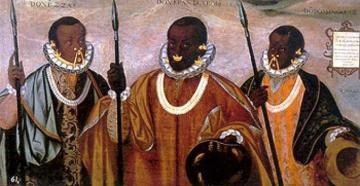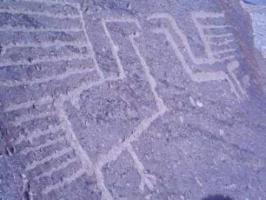A Lost Letter by Ion Luca Caragiale
O scrisoare pierdută

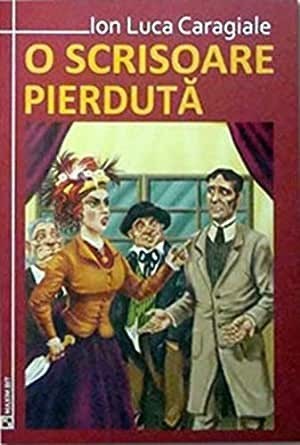
"A Lost Letter", written by Ion Luca Caragiale, is the playwright's masterpiece, bringing together all the essential features of this literary species: it presents schematic characters, inferior from a moral point of view, arouses amusement through various forms of comedy, has a happy ending.
The dramatic character of the work is highlighted by the alternation of dialogue and dramatic monologue, as well as by the presence of stage indications (captions) that set the framework of the action and highlight some of the specific features of the characters.
For the generation of comic aspects and for the insertion of irony, comedy subscribes to the comic, a fundamental aesthetic category, which names one of the essential attitudes of the human spirit towards life and art, aimed at severely sanctioning human weaknesses, playwrights resorting to the tactic of quiproquo, to the comic of situation, of morals, of character, of language.
Being a comedy of morals, the work has as its theme the presentation of the political life of the “capital of a mountain county”, around the elections. It can also be considered a comedy of characters through the multitude of illustrated human types, a political comedy by capturing the reactions of the characters in extreme situations, or a sentimental comedy from the perspective of the Zoe-Tipatescu couple.
The title, an element of paratextuality, has a nominal structure, it is transparent because it anticipates, on the one hand, the intrigue of the text: the loss of a compromising letter for high society, from a mountain town; on the other hand, the indefinite article in the title suggests that political blackmail, through tools such as intimate documents, is a common morality in the era, a letter lost by Zoe being only one of many of this type lost then.
"A Lost Letter" is a dramatic work, structured in four acts, each with nine, fourteen, seven and fourteen scenes, respectively. At the same time, the time and space of the action are limited, the reported events taking place in the “capital of a mountain county”, against the background of some electoral events, possibly those from 1883.
The dramatic conflict starts with the loss of the "love" letter and evolves as Catavencu blackmails his opponents with its publication. After reaching its climax when pronouncing the candidate's name, the conflict is suddenly extinguished when Catavencu is dispossessed of the compromising letter. This basic conflict is combined with other secondary conflicts in the action of the comedy.
Depicting the relationship between Tipătescu and Zoe or the way the elections for the Chamber are conducted, I. L. Caragiale makes a comic of morals. Both family life and the corruption of politicians who take a variety of forms are targeted.
The character comic is also present, because the playwright captures different human types who, through their behavior and character traits, provoke laughter. Pristanda arouses laughter by the blind obedience with which she carries out the prefect's orders, Farfuridi and Brânzovenescu become ridiculous by the exaggerated fear of betrayal; and Catavencu through the demagogic discourse and the change of attitude at the end, when from the deceiver he becomes deceived.
Also present is the situation comic, derived from coincidences, confusions, confusions and equivocal situations, such as the loss and successive finding of the letter, the ridiculous position of Catavencu, who from the master of the situation becomes the victim of a scam similar to the one he had resorted to he.
To all these forms of comedy are added the language comic and the name comic. The comic at this level is caused by the presence of numerous vocabulary mistakes. Neologisms are distorted by mispronunciation ("vampire", "female"), by assigning wrong meanings ("capitalists" - inhabitants of the capital) and by violating grammatical rules.
The name comic has as sources the onomastic matching of the human types associated with them. Zacharias suggests sugaring, ie decrepitude, old age, and Trahanache the possibility of being easily shaped like a soft shell. Catavencu's name is derived from the dog, allusion to the character's demagoguery or perhaps from the dog, a two-faced coat, allusion to his hypocrisy.
In my opinion, "A Lost Letter" by I. L. Caragiale is a total comedy, because the comic's sources are varied and serve the author's intention to satirize the human flaws highlighted by the election campaign.
In conclusion, "A Lost Letter" is a complex work, a fragment of the complexity of social and political life in the great frenzy of Romanian urban society in the second half of the nineteenth century.









